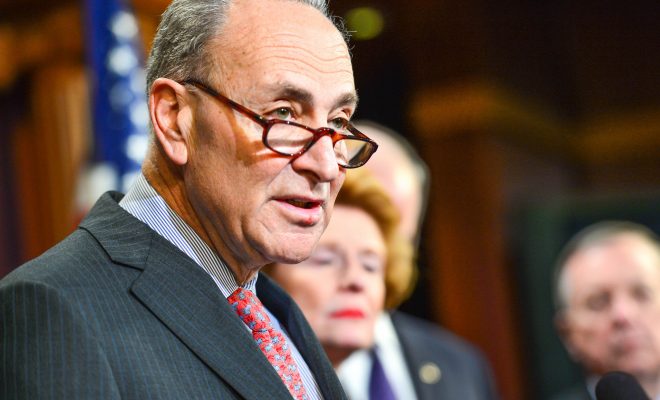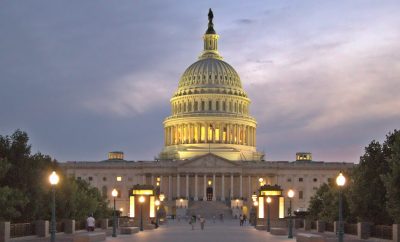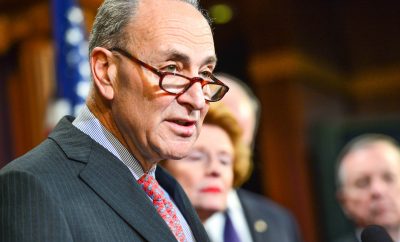 Image Courtesy of Senate Democrats; License: (CC BY 2.0)
Image Courtesy of Senate Democrats; License: (CC BY 2.0)
Politics
Schumer and McConnell Named as Senate Leaders
Senate Democrats chose their next leader on Wednesday: Chuck Schumer of New York. He will be succeeding Harry Reid (NV), who will be retiring after the current term. Republicans stuck with Majority Leader Mitch McConnell of Kentucky. Both struck a conciliatory tone, in regard to working with the opposing party and President-elect Donald Trump, in interviews with reporters after the closed-door vote.
“It’s time to accept the results of the election, to lower the tone and to see what we can do together to make progress for the country,” McConnell, 74, said. Schumer, when asked about collaborating with Trump said, “Where we can work together we will,” adding: “On issues where we disagree, you can expect a strong and tough fight.”
Honored & humbled by the support of my colleagues to be the next leader of our caucus & by the support from so many of you. Thank you.
— Chuck Schumer (@SenSchumer) November 16, 2016
Schumer, 65, also announced a 10-member Senate leadership team, comprised of lawmakers that run the left-leaning ideological gamut, including progressives like Bernie Sanders (VT) and Elizabeth Warren (MA), and moderates like Joe Manchin (WV). Aides said that Schumer and the members of his leadership team were chosen unanimously.
Majority Leader McConnell is not exactly known for acquiescing to the opposing party. He spent much of the spring and summer refusing to allow Obama’s Supreme Court nominee, Merrick Garland, a confirmation vote from Senate Republicans. He has shown some signs of collaboration, however. In 2013, he worked with Vice President Joe Biden to raise taxes on the rich.
McConnell will have more leverage this time around, and Senate Democrats will likely be under pressure to cooperate with Republicans, as 23 of the 33 seats up in the 2018 midterms belong to incumbent Democrats. Schumer shares certain priorities with Trump, like investing in infrastructure projects, that could bode well for avoiding a gridlocked Senate, much like the Republicans have been under President Obama.
In his remarks after Wednesday’s vote, Schumer seemed ready to move on from last week’s surprising outcome. “We heard the American people loud and clear,” he said. “They felt that the government wasn’t working for them. They felt that the economy was rigged against them in many places and that the government was too beholden to big money and special interests.” He added that Democrats will pursue a “bigger, bolder, sharper-edged economic message” in the future.








Comments